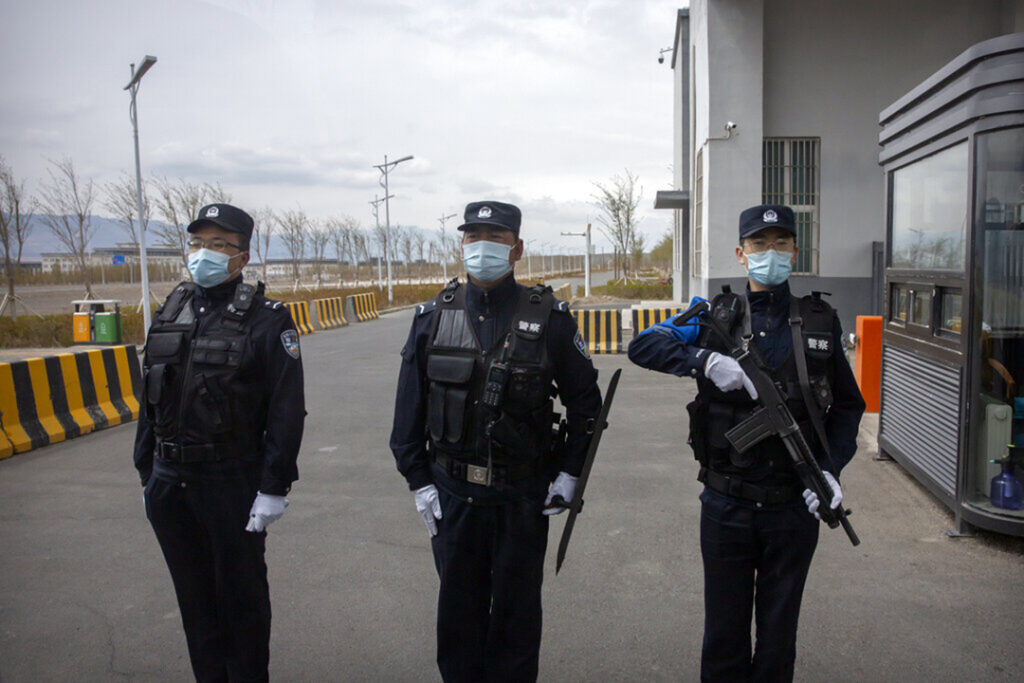Indo-Pacific Defense Forum
Majority-Muslim governments in Central Asia have avoided condemning the People’s Republic of China’s (PRC’s) persecution of Uyghurs and other Muslim minorities in Xinjiang not only because the PRC’s influence has been growing in the region but also because they want Chinese investment.
The Taliban, in its return to power in Afghanistan, has made the same political and economic calculation. In a July 2021 meeting with Chinese Foreign Minister Wang Yi, high-level Taliban representatives pledged that in exchange for economic support, they would not allow Afghanistan, which stands at the crossroads of Central and South Asia, to become a base for militants to launch cross-border attacks into China, Agence France-Presse reported.
It’s an easy promise for the Taliban to keep, Andrew Small, a senior fellow at the German Marshall Fund of the United States, told NPR. “They don’t care about Xinjiang very much in the grand scheme of things or the Uyghurs that much, frankly, either. It’s just not a central concern.”
The PRC has been hedging its bets in South Asia, building a strategic relationship with Pakistan, the Taliban’s largest backer. The PRC has long feared that Afghanistan could emerge as a stronghold for Uyghur separatists, giving the Taliban leverage over the PRC.
For the Chinese, “they perceive it as a real significant threat, not only in Xinjiang, which is where they have a lot of natural resources, but that fear that it can come over and strike at other parts of more economically powerful China,” Rodger Baker, an analyst with Stratfor Rane, a risk intelligence company, told NPR. China and Afghanistan share a 76-kilometer border.
The atheistic Chinese Communist Party (CCP) has cited the existence of religious extremist groups, and in particular Uyghurs, throughout Central Asia as justification for its treatment of Muslim minorities in Xinjiang. The PRC has detained more than 1 million Uyghurs and other Muslims for at least the past few years in hundreds of centers throughout China’s western Xinjiang region, according to news reports. (Pictured: Police officers stand outside China’s largest detention center, called Urumqi No. 3, in April 2021 in Xinjiang. It can hold more than 10,000 inmates, according to The Associated Press).
Despite ideological differences, the communist Chinese government and the Taliban, an Islamist fundamentalist group, are exploring how to cooperate, according to news reports, although analysts say the liaison may be a cynical arrangement.
“There’s a lot of skepticism of one another in this dynamic,” Raffaello Pantucci, a senior associate fellow at London’s Royal United Services Institute, told Radio Free Europe/Radio Liberty. “The foundation of it is that each side views the other as a means to an end.”
The Taliban, which previously ruled Afghanistan as an Islamic emirate, may be gaining more than economic leverage by dealing with the PRC. “When a major Asian power like China shows it recognizes Taliban’s political legitimacy by meeting them so openly, it is giving the Taliban a big diplomatic win,” Lin Minwang, a South Asia expert with Shanghai’s Fudan University, told Reuters.
Other analysts take a dimmer view of the relationship’s prospects.
Rohan Gunaratna, an international terrorism expert at Nanyang Technological University in Singapore, predicts that the Taliban will revert to backing Uyghur militants, especially as they return from Syria.
“The Taliban was their principal host. They have had a very close relationship,” Gunaratna told The Wall Street Journal. “With the U.S. troop withdrawal, the Taliban will become what they were before because the Taliban ideology has not significantly changed. Afghanistan will once again emerge as a terrorist Disneyland, where all these foreign terrorist groups will build a formidable presence.”
Indo-Pacific Defense Forum is a publication of U.S. Indo-Pacific Command.
IMAGE CREDIT: THE ASSOCIATED PRESS

